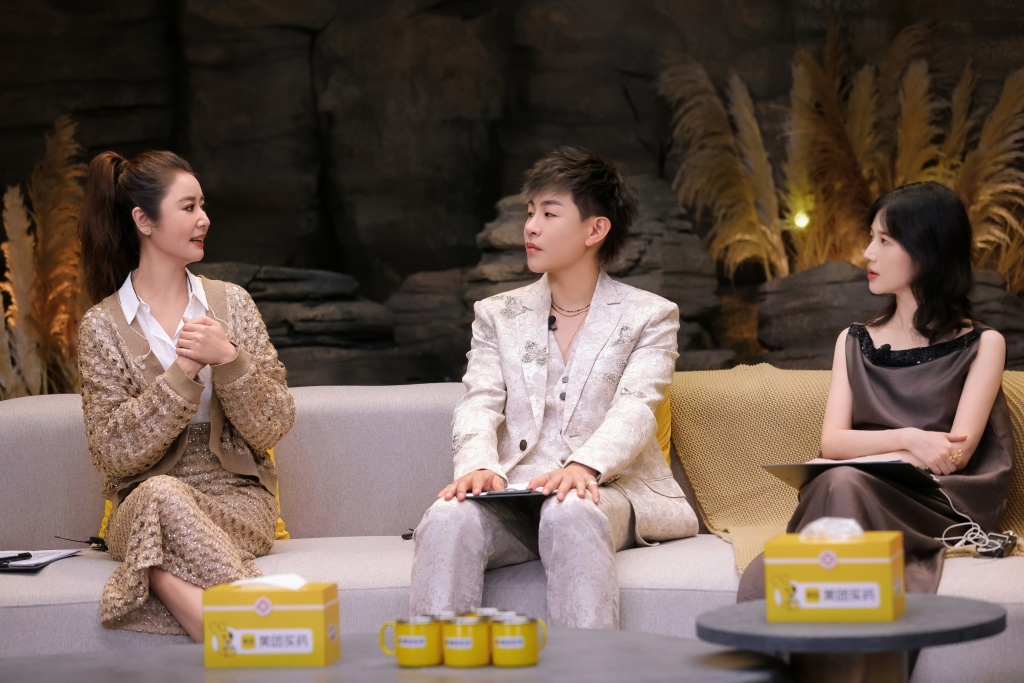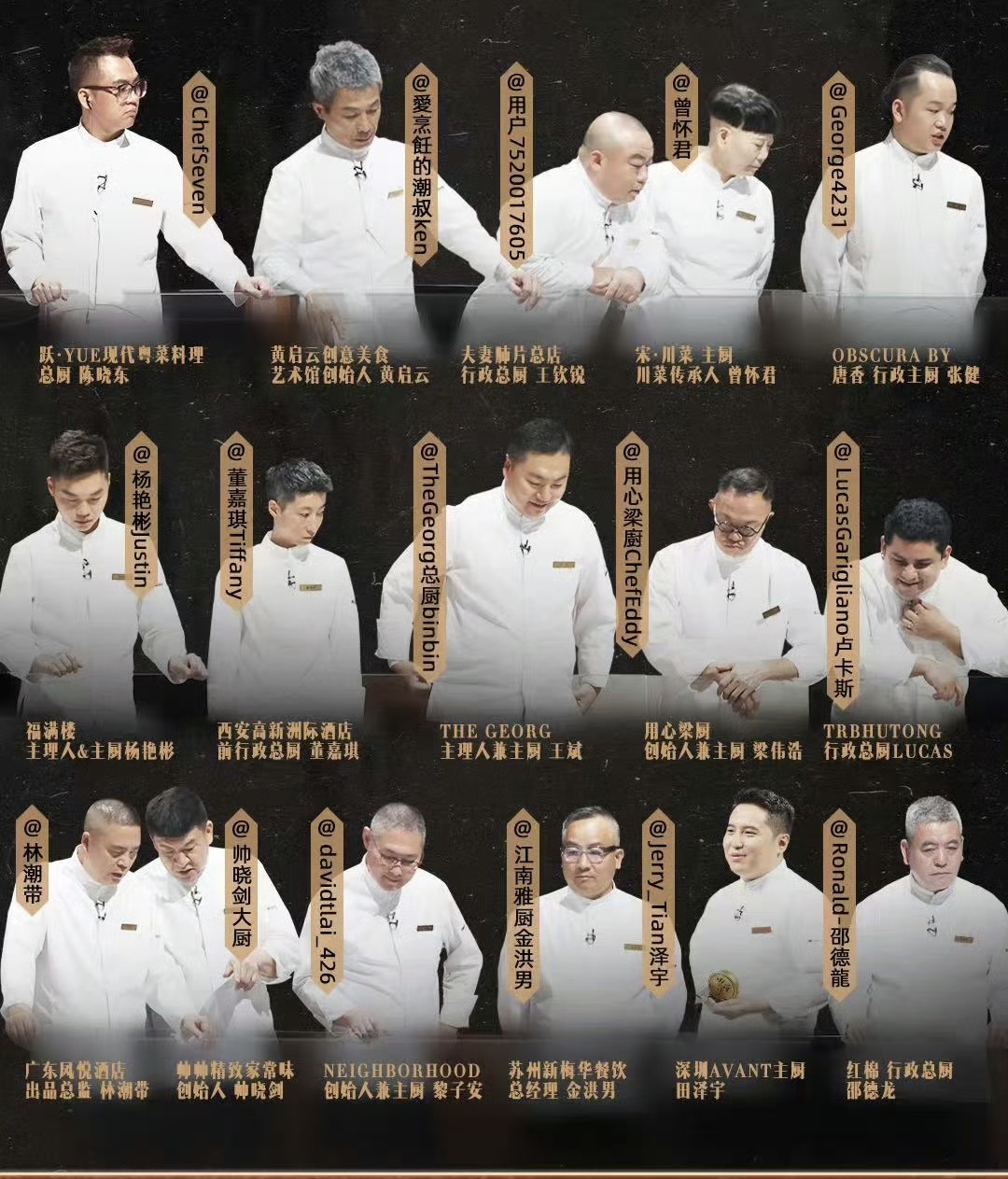
Nowadays, Mango TV has two love and marriage variety shows, "Goodbye Lover 2" and "Wife's Romantic Travel 6" (hereinafter referred to as "Wife 6"), but the directions of these two variety shows are completely different: one presents the marriage relationship. The broken side of the movie, a beautiful romance in the marriage relationship.

"Goodbye Love 2" three groups of guests

Four groups of couples in "Wife's Romantic Travel 6"
The two programs also form an interesting reflection: every couple in "Goodbye Love 2" is scolded, and every couple in "Wife 6" is praised. Is it because marriage is so unpredictable that both parties in a bad relationship are disgusting and deserve to be scolded, while both parties in a good relationship are infinitely gentle and worthy of praise; Kua, it has nothing to do with the marriage itself, it's just that Mango TV is too good at doing variety shows, fully grasping the emotions of the audience?
The emotions of the audience, of course, cannot be said to have nothing to do with the performance of the guests in their marriage, but everyone has somewhat underestimated the manipulation and mobilization of the audience's emotions by variety shows. In other words, if the guests of the show let the audience scold or praise them, it may already be under the control of the show. This article does not intend to discuss the content of these two programs, but uses them as samples to analyze the emotional guidance that the audience has not noticed, so as to maintain more sobriety and introspection, and not blindly praise or utter bad words easily.
How do variety shows affect audience likes and dislikes?
First, the program's agenda setting and theme first have actually made the audience preconceived and regulated the audience's discussion around the agenda needed by the program group.
What does that mean? That is, before the audience clicks on "Goodbye Lover 2", they have already been implanted with a concept by the first season and the various promotions of the show: all the people who came to the show were or are still "problem couples". The problem, and it was these issues that brought their marriage to the brink of disintegration.
Naturally, in the selection and dissemination of topics, the program must choose the clips that the guests have problems; and whether it is an observer in the program or an ordinary audience outside the program, it will naturally form a "let's find them Questions," "How annoying are they?" "What kind of partner is suffocating in a marriage" and so on, and sparked social discussions. Throughout the whole process, the audience will see all kinds of questions from the guests, and there is a high probability that they will be scolded.
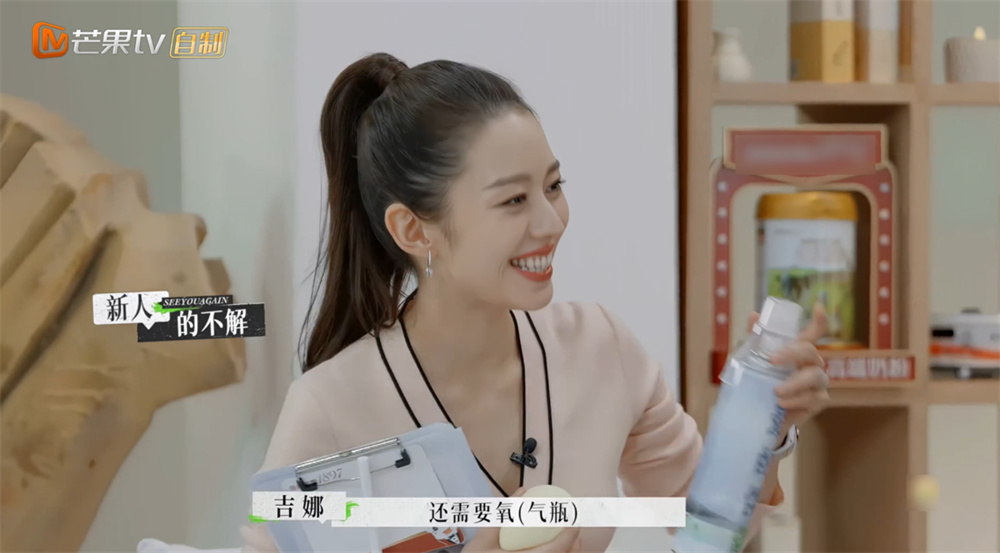
Before the second episode of "Goodbye Lover 2", oxygen cylinders were given to the guests before the feature film. It is preset that this issue has a slot
In contrast, before the broadcast of "Wife 6", the perception of "the show is very sweet" and "the guests are very sweet" has been implanted in the audience; " and other topics unfold, the audience's agenda becomes "what is a good marriage like" and "how to learn/learn from a perfect partner", and it is easy to feel envious and adoring the guests.
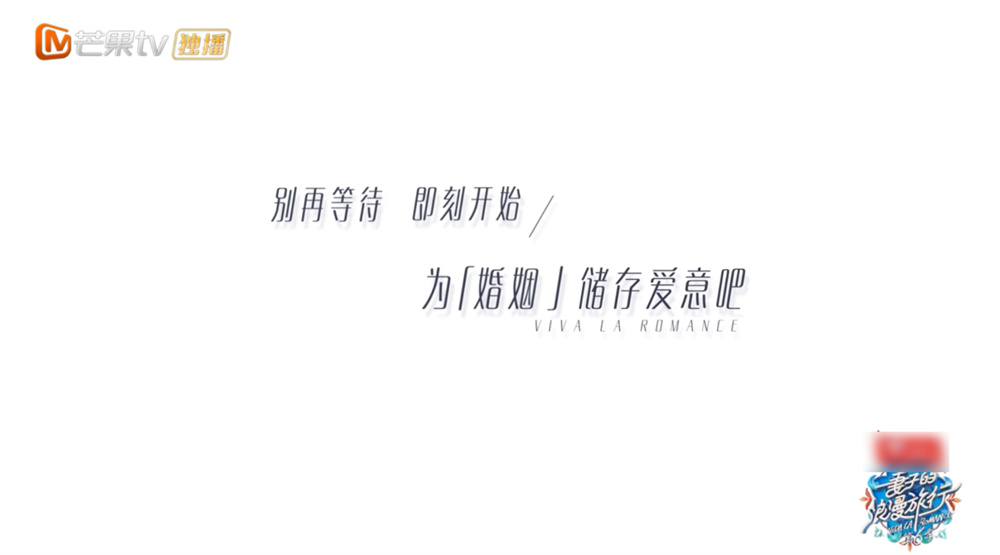
The leading film of "Wife 6" is full of warmth
Here comes the key: Are the problematic couples in the show really that unbearable? Sweet couple, is it really that sweet?
Reality has hit us in the face many times. For example, there were three groups of couples in "Happy Trio", among which Jiang Hongjie and Fukuhara Ai, Wang Xiaofei and Da S have become "former couples". I still remember that when the show was broadcast, there were a lot of people discussing how sweet they were on the Internet. Mai Chao and Zhang Jiani, whose marriage is facing a crisis at the moment, also appeared in "Wife's Romantic Travel 2" together. Although it was Zhang Jiani's heart knot that they did not hold a wedding at that time, most of the time the two of them were in a perfect fairy tale state.
Many viewers were only hindsight at this time, trying to find clues to their marital problems in the show. This is of course futile. It was not known whether they were really sweet at that time, but the agenda setting of the show must be "they are so sweet".
In "Goodbye Lover", KK Wei Wei and Tong Chenjie once made the audience think that they were on "Wife's Romantic Travel". To put it bluntly, if their status is bigger (no disrespect to them), it would be no problem to invite them to a show showing affection. Their relationship is facing some problems, but not necessarily more serious than some of the loving couples in the six-season "Wife's Romantic Travel". In the same way, just to make a joke, if Zheng Jun and Liu Yun were smaller, and they dared to face controversy at the same time, they could also go to the next door "Goodbye Lover" (no disrespect to them), after all, in the show they There were quite a few disputes and Liu Yun shed tears.
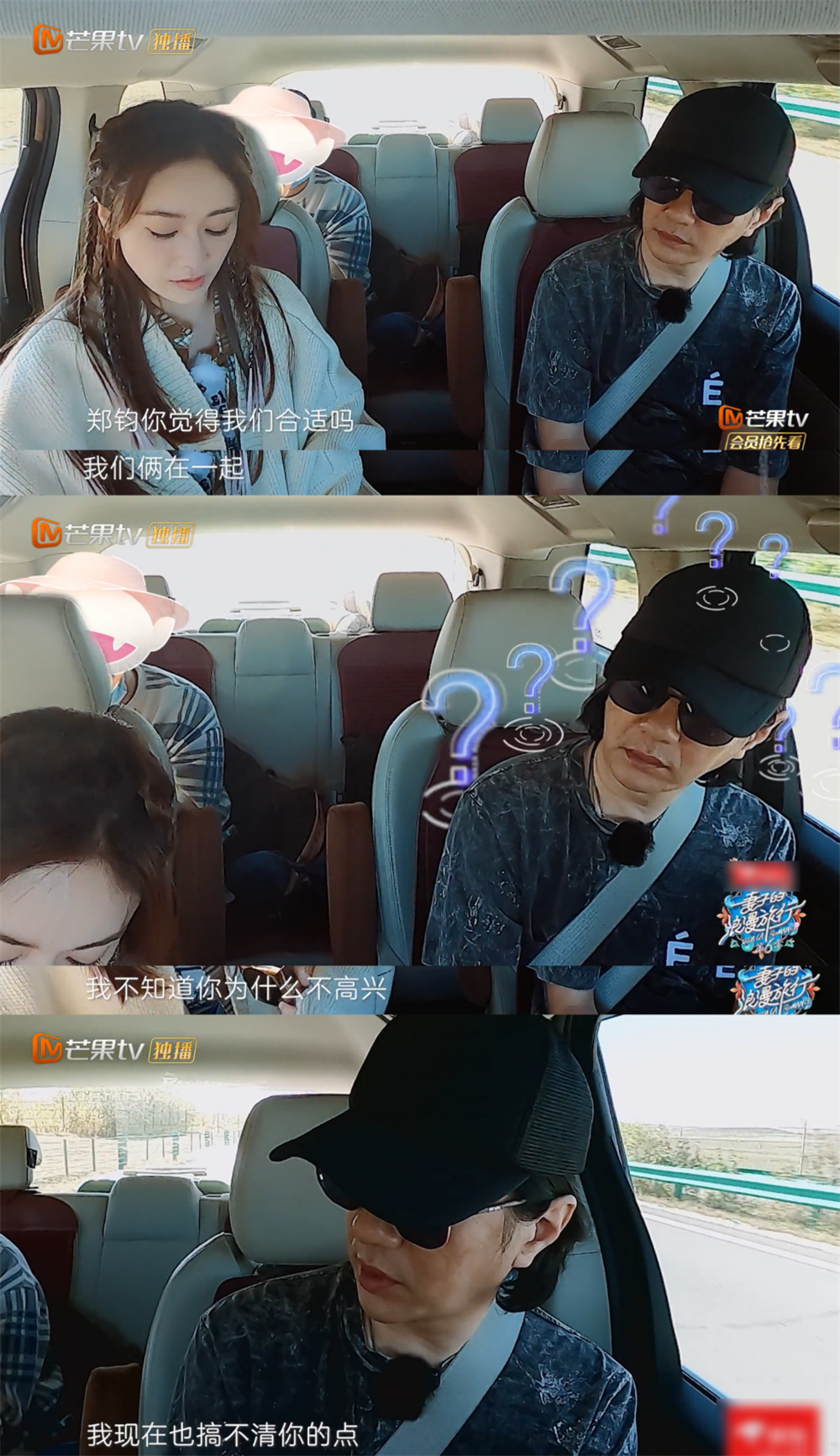
Zheng Jun and Liu Yun
There are very few couples without any problems. As for whether to highlight the sweetness or the problems, it depends on the "agenda" of the show. It is to have an agenda first, and then look for suitable guests. If the guests are willing, they will hit it off; it does not necessarily mean that they are really perfect enough to be praised by the audience, or their problems are so big that they are worthy of scolding by the audience.
Second, the editing of the program. The ideal editing should be realistic, but more often than not, editing is the "secondary creation" of variety shows, which somewhat deviates from the true colors.
The recording of reality shows is often uninterrupted 24 hours a day, and multiple cameras record at the same time, with dozens or even hundreds of hours of shooting material for each episode. To edit out the essence of two hours from so many materials, it must go through a lot of screening, concatenation, reorganization, arrangement, adjustment, and trade-offs. For example, a suffocating behavior of a guest in a show may not be so odious after the complete editing shows the cause and effect, and vice versa, if some controversial scenes are edited out, an annoying guest will also become so cute.
This is not to say that the two programs use editing to deliberately "lead" the audience to scold or praise, but what is clear is that the power of editing has been dominating the progress of the program.
Two innocuous examples can be cited. For example, the relationship between Aiwei and Lisa was not revealed to the audience until the second issue after a long preparation - the tense relationship between husband and wife turned out to be because of Lisa playing mahjong; but then there was another reversal - on the surface it seemed to be Lisa's problem , In fact, Ai Wei's problem may be even bigger. The setting of suspense and the ups and downs of the narrative benefited from the layout of the editing.
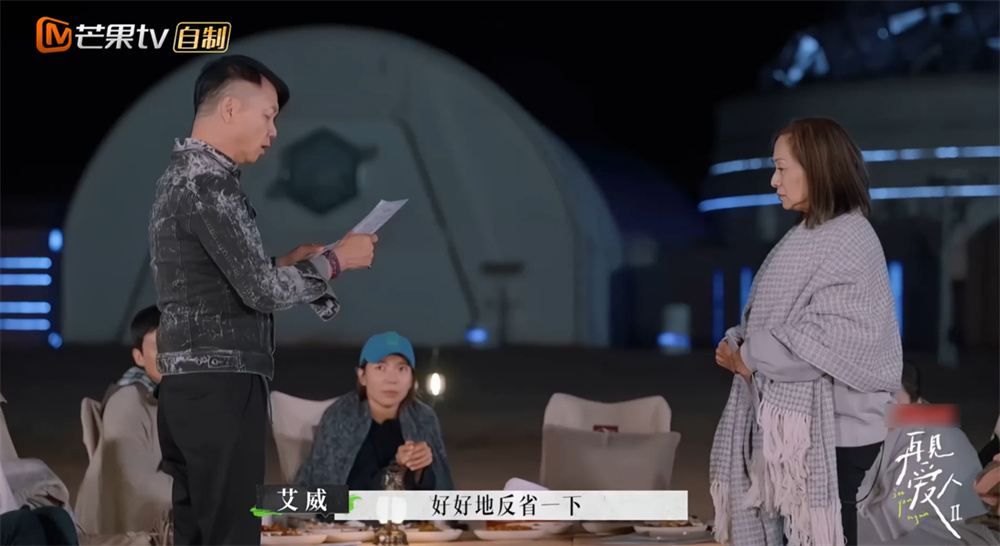
Ivy and Lisa
Another example is that at the end of the third episode of the program, Yi Lijing's interview with Zhang Wanting was announced. With some key sentences and the exaggerated expressions and statements of the guests in the observation room, the audience thought that the "fight" was so tragic, and couldn't hold back their expectations for the fourth issue. But after watching four or five complete interviews, you will find that the overall situation is very peaceful. Yi Lijing asked a few questions directly, and Zhang Wanting also opened her heart rarely.
So, is Zhang Wanting really that "hateful"? Of course, those words came from her mouth, but because of the length of time, the program must have edited out some seemingly insignificant clips that may improve our evaluation of Zhang Wanting in the first two or three episodes.

The clip of the next preview is very fond of doing things
Third, the arrangement of the "script". The script is also an integral part of the program and is the core embodiment of the reality show "show". The script has two meanings. One is that the show really made the script for the guests to act, to act sweetness or conflict. This is a very low strategy, and "Goodbye Lover 2" and "Wife 6" should bother to use it.
Another meaning of "script" exists in all variety shows, and it refers to all the process design of the show. The process design largely determines the viewability of a program, whether it is interlocking and fascinating, or flat and bland; at the same time, the process design also affects the "personality" of the guests. People hate to the end, or is there a process of suppressing first and then raising?
Take "Goodbye Lover 2" as an example. The arrival of Huang Jue and Maizi, the arrival of Yi Lijing, and mutual portraits are all the "scripts" of the show. Ingenuity. It can be boldly predicted: Zhang Wanting will roughly get a "continuously growing" script. The show first lets her release her nature completely (the editing is indispensable) - Yi Lijing comes (the script properly introduces external forces), analyzes her heart, and allows the audience to understand her better - then she may reflect and grow (at least This is reflected in the flow of the program).
Just imagine, if Yi Lijing had discovered the problem from the very beginning, Zhang Wanting's many "disgusting" sides might not have had the chance to be released.
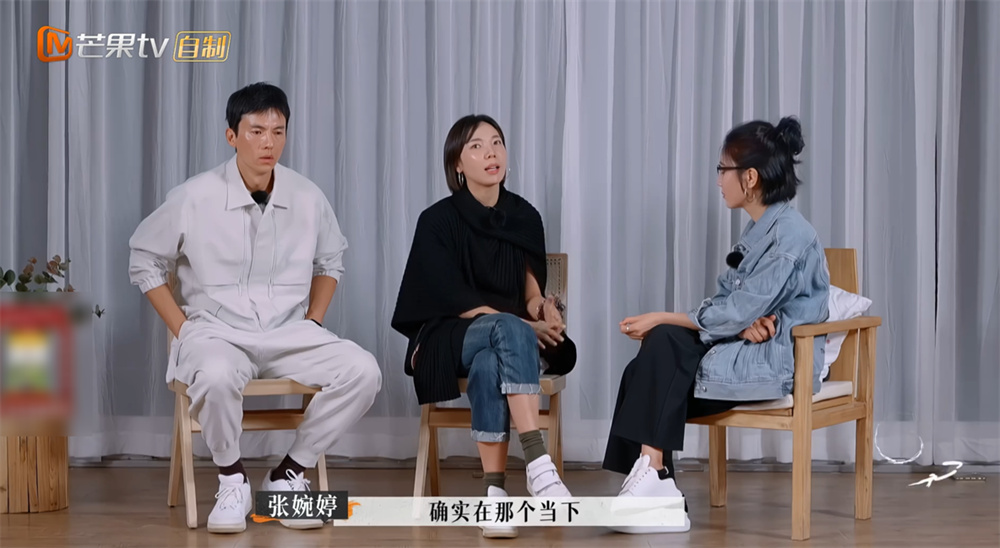
The timing of Yi Lijing's appearance is very particular
To sum up, we will find that variety shows have always secretly dominated the audience's likes and dislikes, leading the audience's emotions, so as to achieve the theme and form the program brand.
Distinguishing the ability of the program group to mobilize the audience's emotions is not to deny the program, not to deny the sincerity of some guests, not to deny the subjective initiative of the audience, nor to deny the audience's true feelings when "chasing the drama". It is not ruled out that some viewers can see themselves from the show and gain deep empathy, benefit a lot from the show, and improve their relationship with their partners. If you are deeply involved in the drama, if it is to make life better, then of course it is welcome; if you are only using it to vent your emotions, to blow mindlessly or viciously attack the guests, then it is unnecessary.
